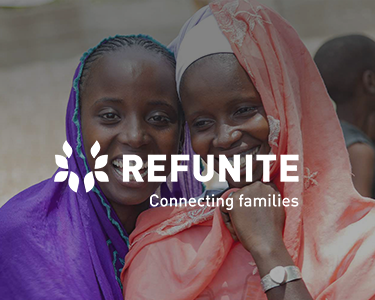30 Apr 2010 – There’s no telling how many children became orphaned or separated by Haiti’s earthquake on January 12, but there are no doubt many thousands. Some have been taken in by caring neighbors or strangers in homes still standing or in the hundreds of makeshift settlements scattered across Port-au-Prince and other devastated cities. Others have been placed in orphanages across the country. Every day, a small army of determined caseworkers hits the rubble-strewn streets to talk to children who have lost their families and to search for parents looking for missing children. This detective work is difficult and exhausting. But on those days that they connect the dots and bring families together again, there is nothing more precious.
*The names of separated children have been changed for their protection.

Photo: Melissa Winkler/The IRC
Pascal’s* mother dropped off her only child at the home of his babysitter, Santsiane, the morning of January 12, before heading to a house where she worked as a maid in Port-au-Prince. Hours later, that house collapsed, and like so many in Haiti on that day of profound devastation, Pascal’s mother never returned home. Santsiane says she loves the little boy but she lost her home too and can’t afford to care for him much longer. She knows Pascal’s mom was from a town in central Haiti, but she doesn’t know the name of it and she’s never met any of his relatives.

Photo: Melissa Winkler/The IRC
Pascal is one of more than 1,000 children who have been registered by a network of aid agencies working to identify separated children, trace relatives and reunite family members. The International Rescue Committee is one of the coordinators of the effort, which began with an extensive training session for caseworkers who were recruited in the days and weeks after the earthquake. IRC child protection coordinator Rebecca Chandler and database specialist Clavens Jean-Marie go through the steps of family tracing during a February training session: identification, registration, tracing, verification, mediation, reunification and follow-up.

Photo: Melissa Winkler/The IRC
Margareth Bien-Aimé is now part of an IRC team of 16 caseworkers with a caseload of nearly 300 separated children. Every day she boards a bus at 5 am from Leogane to Port-au-Prince, returning to her quake-damaged home at 8 pm. All day long she scours assigned settlements and neighborhoods, registering lost children and looking for clues as to the whereabouts of their families.

Photo: Melissa Winkler/The IRC
It was in this dense and squalid settlement in Cité-Militaire that Margareth first learned about Georges* from a camp committee that was set up to help identify vulnerable children. Several days after the quake, Georges was found here, confused, distraught, wandering alone and hardly speaking.

Photo: Melissa Winkler/The IRC
A street vendor working nearby decided to take Georges in. “I live here with my auntie now,” Georges whispered to Margareth, when she visited the vendor’s one room apartment where she lives with three other children. Margareth gently asked him questions about his parents, his siblings, where he lived and went to school. He recalled very little, but she took down every word. When she finished, she rubbed his head, gave him a hug and promised to be back soon.

Photo: Melissa Winkler/The IRC
Next, Margareth went to visit Georges’ caregiver, Loomil, on a busy street where she sells batteries, chewing gum and other sundries. Loomil told Margareth that she couldn’t bear to see the child homeless and hungry when she still had a roof over her head. She offered to help Margareth find out more information about the boy and said she would care for him until his family is found.

Photo: Melissa Winkler/The IRC
The work of caseworkers like Margareth is both tedious and mentally and physically exhausting. All too often, days of combing neighborhoods and following leads do not lead to joyful reunions. Some destitute and overwhelmed parents say they can’t afford to take their children back, while some relatives say they don’t have the means to take additional children in. The IRC and other aid agencies are beginning to offer small packages of assistance to ease the burden on the poorest families—sending the returning children home with things like school supplies, basic sanitary items, and other material support.

Photo: Melissa Winkler/The IRC
But more often than not, parents and other caregivers are desperate to find their missing children and that’s what motivates caseworkers like IRC’s Alienne Cadet, who continues to look for family members of little Pascal. So far, the IRC has been able to reunite 18 families in Port-au-Prince. The number is small considering the caseload, but the pace is picking up.

Photo: Gerald Martone/The IRC
On the day of the earthquake, Geralda, a two-year old, was playing with children next door under the watchful eye of her neighbor, while her aunt Carole, who had raised her since birth, was out shopping. Soon the street was shaking, houses were crumbling and there was chaos. The neighbor waited hours for Carole to come home and when she didn’t, she assumed the worst. She collected Geralda and her own children and took refuge in a makeshift settlement – one of 120 such sites in the neighborhood of Centreville where tens of thousands of earthquake survivors now live. Carole eventually made her way home and saw her street in ruins. She too, assumed the worst.

Photo: Gerald Martone/The IRC
In late March, IRC caseworker Barbara Morreau (center), a former sports teacher and scouts leader, registered Geralda as a separated child. Barbara met with the settlement’s committee and the neighbor (right) to learn as much as she could about the case. She also coordinated with a representative (left) of the Institut du Bien-Etre Social et Researches (Institute of Social Well-being and Research) – with whom we work closely on all aspects of family tracing in Haiti. With a photo of the little girl in tow, she criss-crossed Centreville asking questions and searching for Carole. It took her 12 days to find her.

Photo: Gerald Martone/The IRC
With help from the neighbor, Barbara was able to verify Carole’s identity. “When I found Carole and showed her the picture she was absolutely astonished and amazed,” Barbara recalls. “She really believed the little girl was dead and she had been grieving.” And for Barbara, it was a wonderful moment as well. “I have a daughter of my own and I could not imagine losing her. And I could only hope that someone so caring would help her if she went missing.”

Photo: Gerald Martone/The IRC
On April 8, the IRC reunited little Geralda and Carole. “I watched them embrace when they first saw each other. It was like a miracle,” Barbara said. But moments later, a mother in the settlement came up to her and asked for news of her missing child—a stark reminder of the overwhelming work that lies ahead.

Photo: Gerald Martone/The IRC
Jennifer Morgan, who coordinates the IRC’s family tracing programs in Haiti, says in a country with both a tradition of placing children in orphanages and a history of child trafficking, there is much to be done to strengthen Haiti’s child protection systems. But she also says there are signs of hope. Aid groups are already working with the government to improve services for vulnerable children and every day there’s progress in placing children like Geralda back in the arms of their families.
By: Melissa Winkler
Source: International Rescue Committee


